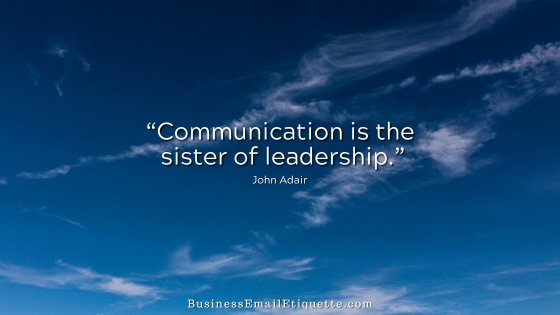Business Email Excuse: “That’s Not What I Meant?”

I had an experience this week that I made a note to share with you. Over the years, based on emails from my readers, I know that many of you have been in the same situation.
Here’s What Happened
I responded to an email with several comments that were a bit disappointing based on knowing this person for some time. And that’s the word I used when I emailed back my response – disappointing (although one could easily say it was insulting).
What they typed didn’t apply to me or anything I had done or not done. So in my reply, I asked for clarification.
This person’s “clarification” was how the original email they had sent to me could have been typed better “if they took the time to be thoughtful and considerate.” They continued… “It was not meant to be personal, so please do not take it that way. I just assumed that…”
They knew what they “meant” and assumed. (You know what happens when you assume, right?)
How can you not take an email personally that was sent to you? It was sent to YOU, and the message is addressed to YOU. Now, I’m not one of those overly sensitive people who read things into emails that aren’t there. However, when comments are directed at me, it is difficult not to.
Pros Communicate with Clarity
This individual put their lack of professionalism on display. If you are having a bad day or believe that something needs clarification, you do not do so by making statements that are not accurate or accusatory.
It would be best if you never put a business contact in a position to deal with and compensate for your knee-jerk communication. That is not the mindset of successful professionals.
It is personal when you question someone’s ethics or integrity without any direct reason to do so. When you make accusatory general claims because you are having a bad day and didn’t take the time to investigate further — that’s on you.
The situation I experienced this week could have been avoided — easily by first investigating the situation at hand (past communications and documents) to understand better what was going on.
Then, by taking the necessary time to ensure that what was typed is what was meant — and accurate. But we were rushed and frustrated, and I was the lucky recipient.
This individual felt that their explanation was sufficient or an apology. However, that word was not typed.
Own Your Mistakes
When you make mistakes or are misunderstood because you did not do your due diligence, own it and apologize. You do not make excuses and certainly do not trivialize abrasive comments by claiming you didn’t mean them.
In business, there will always be those who type what they want without taking a moment to review. They do not think about whether their questions/challenges are apropos or even accurate. Because of that many, a business relationship will suffer or be jeopardized.
You cannot say, “it was not meant” or “you didn’t mean to” if you typed it!
You. Typed. It.
The words you chose to type are what you mean. Otherwise, why would you use those specific words? Words have meanings, and you cannot expect the other side to know what you mean if you don’t communicate with crystal clarity.
They Mean It
The reality is what is typed is meant at that moment in time. It is more poignant when it is someone you know (or thought you knew).
Those who recklessly type in this manner tend not to be used to being questioned or challenged directly about their comments or approach. Being a skilled communicator, I can do that in a way that makes my point without offending or making the sender feel that they are being accused or confronted.
If this individual had taken a moment to review their email (or read it out loud), there is a chance that may not have sent that email. They claimed they weren’t thinking — they were in a hurry. But they are not apologizing, which tacitly implies they typed what they meant.
Some contacts may not be as understanding as I was in this instance. We had a history, so I didn’t allow this one email to negate all that. But as will always be the case in these situations, my opinion of this individual changed, even if ever so lightly.
Choose Your Words Wisely
You are what you type and the words you choose to use. Know that the person on the other side will take what you type at face value.
This includes business promises made coming to fruition. If you type it (“I’ll get that quote to you tomorrow.”) know that you will be held accountable for following through and doing just that.
Recipients will take you at your word(s). Word choice can, without a doubt, affect your business and professional relationships. And, possibly, your reputation. So it’s easy to avoid adverse communications.
Why risk being misunderstood or having a contact’s opinion of you change negatively simply because you didn’t take the time to be super clear? Or worse, you didn’t follow through.
Is it worth your time and effort to ensure that what you type is what you mean? And that it is an accurate representation of the situation at hand?
Absolutely — your bottom line depends on it!
Have you experienced a misunderstanding in a business-related email due to not being clear? How did you resolve that? Let me know…






